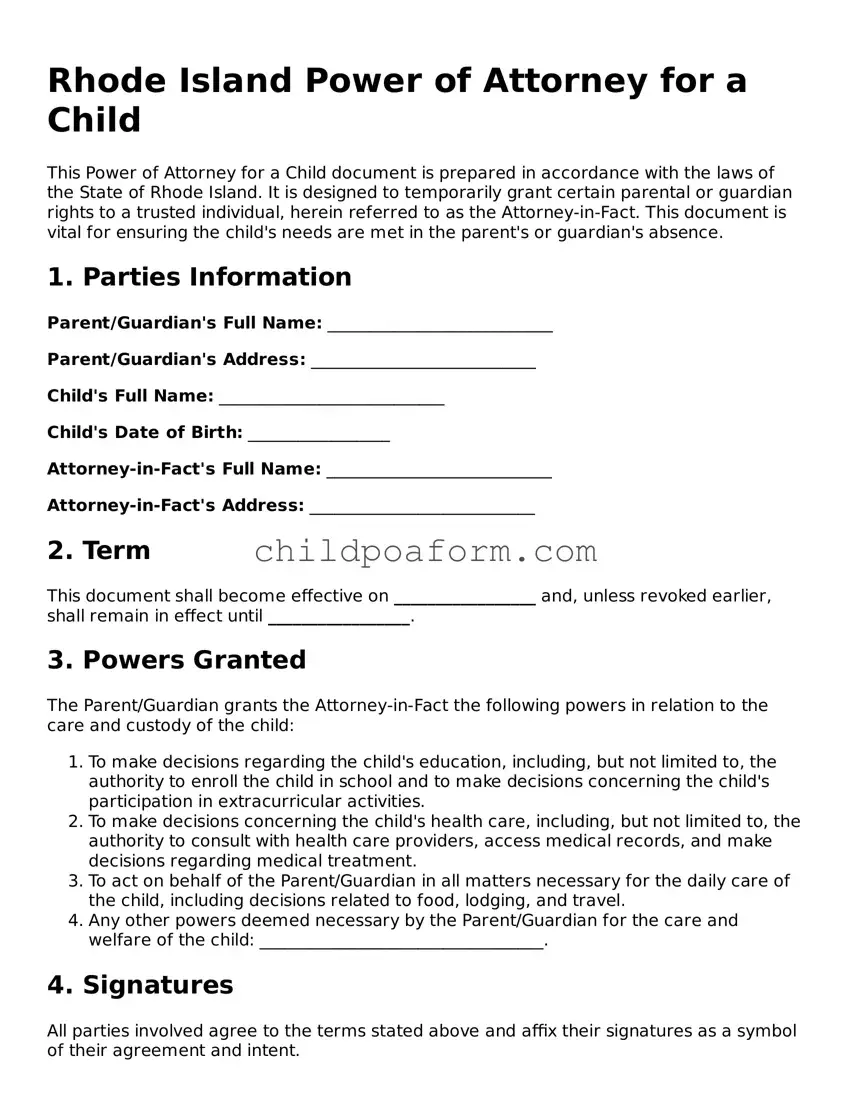Instructions on Utilizing Rhode Island Power of Attorney for a Child
When life’s unpredictability necessitates a helping hand, the Rhode Island Power of Attorney for a Child form is a powerful tool. This form allows parents to legally appoint someone else to make important decisions for their child, covering aspects like healthcare, education, and daily care needs. Filling it out may seem daunting, but by breaking it down into manageable steps, you can ensure the document reflects your wishes and provides the best care for your child. Here’s how to navigate the process smoothly.
- Gather essential information: This includes the full legal names, addresses, and contact numbers of the parent(s) or current legal guardian(s), the appointed attorney-in-fact, and the child or children being represented. Don't forget dates of birth for all parties involved.
- Download the official Rhode Island Power of Attorney for a Child form. Ensure you are using the most current version by verifying it on the Rhode Island Judiciary's website or consulting with a legal professional.
- Complete the introduction section: Here, you'll fill in the names of the parent(s) or guardian(s), the child or children, and the appointed attorney-in-fact. Pay keen attention to spelling and legal names.
- Specify the powers being granted: Clearly outline the extent of the authority you are transferring. This can include making decisions about the child's education, healthcare, and any other aspects of daily care.
- Term of the agreement: Indicate the effective date and the termination date of the Power of Attorney. If no end date is specified, note the conditions under which the agreement will cease to be effective.
- Include special instructions or limitations: If you wish to set specific limits on the attorney-in-fact’s powers or add directions regarding the care of the child, detail these instructions in the designated section.
- Sign and notarize the document: The parent(s) or current guardian(s) must sign the form in the presence of a notary public. Depending on local laws, additional witnesses may also be required to sign.
- Distribute copies of the notarized document: Provide a copy to the appointed attorney-in-fact, keep one for your records, and consider giving copies to relevant parties such as your child’s school or healthcare provider.
Once the form is filled out and properly notarized, it stands as a beacon of preparedness, ensuring your child’s care and decision-making remain in trusted hands, even when you're not physically present. This process not only secures peace of mind but reinforces the circle of care around your child, backed by the legal system. Remember, consulting with a legal professional can provide personalized guidance suited to your situation, guaranteeing that all necessary legal and parental bases are covered.
